Okay. I got up and wrote a bitter little blog full of whining. I decided that I would delete all the prose and just leave the pics. I’m sure if you read this blog at all you can fill in all the bitterness yourself.





Okay. I got up and wrote a bitter little blog full of whining. I decided that I would delete all the prose and just leave the pics. I’m sure if you read this blog at all you can fill in all the bitterness yourself.





I kept having trouble getting started on things yesterday. The asbestos man came twenty minutes early (7:10 AM!). I was hoping he could sort of sneak in the basement and do his thing. Nope. He began covering grates on the first floor. Eventually I understood that he would have to cover every grate in the entire house. He was surprised when I told him the previous asbestos person had not taken these extensive precautions. I also told him that my wife was asleep upstairs and that we had a cat.

Eventually we got all the grates covered, the cat safely sequestered on the porch for the day, and Eileen up and at ’em so the asbestos guy could go upstairs and cover the grates.
This of course stopped me from finishing my blog yesterday.
Eileen and I went out for breakfast, since not only was the asbestos guy there, but Chris the worker also showed up do some more stuff our contractor told him he had to finish.

So it was a day of disruption.
I decided to walk over to the college and sit and pick hymns while I waited to meet with Rhonda and Aaron.
This also didn’t work out so good. It turned out that Hope had changed its wifi campus connection (or as a student called it “The Internet”). This caused my laptop to forget the profile. It seemed to be asking for the same kind of security key code password. I then spent the next forty minutes trying to find the stored wifi connection profiles on my laptop. No luck.

Aaron showed up and gave me the code. Then we had our meeting. Then I listened to Rhonda play a fugue on Ernst Pepping on BACH. She is preparing a program of fugues and asked me to listen to this one.

After that I walked home, grabbed lunch and then drove to the church to work on picking hymns. I took a break from that to meet and rehearse with my piano trio.
Then back to picking hymns. Around 3 PM I stopped and practiced organ. By this time I was pretty frazzled.
But my organ practice went better than expected.
This morning I got up and drove to Spectrum Health for a blood draw.
No record of my urologist ordering one.
I just called his office and left a message.
I have to pick up my Mom in forty minute and take her to her psychiatrist appointment. Eileen’s Mom and sisters are coming today to look at our toilet.
And I still don’t have all my hymns picked out for the next year. Nor do I have the choral anthems chosen. Nor do I have the choir room catastrophe sorted. Nor do I have all of the choir room stuff moved back into the renovated choir room. All of this must happen in the next week.
Despite all of this, I am feeling a tad less stressed than I have been.
Go figure.
Church planning is on my mind. Yesterday I spent a lot of the day choosing hymns. I managed to get all the way through Christ the King which is the last Sunday before Advent. At the same time I looked at possible choral anthems for each Sunday. I took some time in the afternoon and chose a postlude for this Sunday. I landed on “Grand Choeur” by Theodore Dubois.

It’s a goofy loud piece which I have performed at least twice before in church, once in September of 1991 and again in November of 2008.
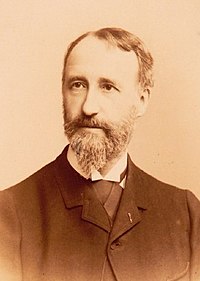
Dubois is one of those dang French romantic type guys. I think that even organists enamored of the Romantic school (of which I am not one) think Dubois a bit goofy. Nevertheless Wayne Leupold put it in his anthology of Romantic Flourishes which is the edition I am playing from.
So today I continue on and try to plan. I would like to pick hymns for the entire church year, but plan at least to get through Christmas this week. My first official choir rehearsal is not until Wednesday Sept 11 so I have a bit of time. But I also have a ton of work to do before then. The basement at the church is still full of all the stuff that has to go into the new choir room. I have delayed sorting this week to spend my time on planning.

As I am writing, the USA is considering another war, this time with Syria.

I cannot believe this is happening again. I know there is such a thing as realpolitik but when humans consider more killing to stop killing I find myself worn down and discouraged.

I’ll end with a couple of pertinent allusions from my reading this morning. The first is about terrorism. In Thinking Fast and Slow, Daniel Kahneman teaches quite a bit about the current field of decision making. One of the things he talks about is how we weigh probabilities and possibilities. He specifically talks about living in Israel at a time when suicide bombings in buses were proliferating (Dec 2001 – Sept 2004). During this time there were 23 bombings and 236 deaths as a result. Despite this, the likelihood of being directly involved was minuscule. Later in the book he compares it to buying a lottery ticket. In both cases the probability was low, the outcomes (being involved with a terrorist bomb or winning the lottery) were also unlikely.

Kahneman’s studies reveal that in this case, we unreasonably assume risk. He talked about avoiding buses at stoplights even though he knew rationally (and was actually studying the fact) that he was more likely to be involved in a car accident than a terrorist event.
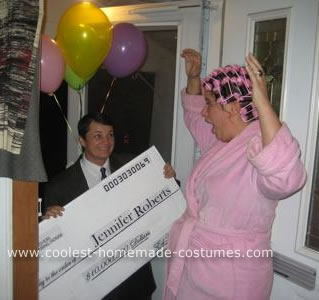
Terrorism counts on people not acting or thinking rationally. Our System 1 (the quick glib surface intuitive response) cannot be turned off. However we can decide to live life as normally as possible and not buy a lottery ticket expecting anything like a chance to be killed by a terrorist or win the lottery.

Later I was reading Auden’s beautiful poem “In Memory of W. B. Yeats.” I am reading Auden’s work that he did during WWII. Living in England must have been very traumatic at that time. But Auden makes some beautiful poetry at this point in his life. I have even read critics who say it was the war years during which Auden began a new level of work.
At any rate, Yeats died in 1939 and Auden wrote these words with the sounds of the destruction of his country in his ears.
“In the nightmare of the dark
All the dogs of Europe bark,
And the living nations wait,
Each sequestered in its hate;”
This makes me think of the wars going on in the world right now. We have the “dogs” of the world not just Europe barking in our ears. Auden continues later in this poem with this:
“Follow, poet, follow right
To the bottom of the night,
With your unconstraining voice
Still persuade us to rejoice…”


My software seems to have gone a bit berserk and moved stuff around on my web site. I fucked around with it a bit yesterday and couldn’t quite figure it out. I’m hoping it will fix itself as I move on and put up more posts. I also get mysterious emails asking me to update this or that. I attempt to do so, but have no confidence in succeeding.
Yesterday was my last Monday off for a while. I drove over to Grand Rapids in the morning and saw my eye guy. He says the torn retina is healing nicely. I go back in a year. I came back and used the rest of the day to grocery shop, meet with my friend Rhonda to talk about AGO stuff, move stuff around in the room Eileen wants to paint soon, and exercise. By the end of the day I was pretty tired.
Today I have to begin some serious planning for the upcoming church season.

I have no heart for it, I’m afraid. But I will muster the will to do it.

I’m hoping that Tuesdays and Thursdays will be days I can set aside time to composer. But not this week.
Anyway, that’s about all I have this morning.
.jpg)
I did run across a couple of new tech news web sites yesterday.


I’m curtailing my morning reading a bit so that I have time to post here. I have a 9:30 AM appointment in Grand Rapids this morning for a follow-up on my eye surgery at the beginning of the summer. So I have less of my morning than usual.
Church went okay yesterday. I didn’t play as well as I would have liked (prelude and postlude). But I guess the postlude went better than it would have had I not practiced at the cottage.
I came home and attempted to balance the checkbook. I failed. Then Eileen took over but she couldn’t find the error either. In the end we just believed the bank and adjusted our ledger balance.

By this time I had sunk into a weird funk. Not sure exactly why. It wasn’t one thing particularly but more like a culmination of little things plus my physical/mental state. At least that’s my best guess.
There were a couple things at church that depressed me. I guess it’s best not to air them here.
At any rate I spent the rest of the day trying not to be a complete downer for Eileen. I don’t think I succeeded. She, of course, was sympathetic and patient. As usual.
By evening the mood had mostly dissipated.
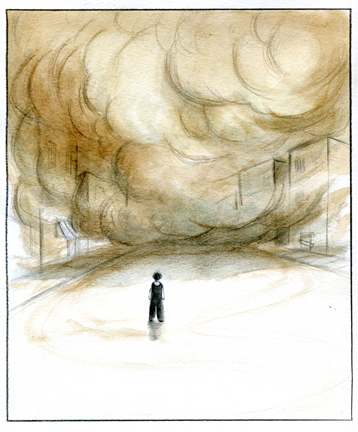
Even in the midst of my bad mood, I continue to remember that my life is good. And it is.
1.Exploring Saline’s Secret Costs – NYTimes.com
Another article about how the complexities and veil of secrecy of billing in hospitals contribute to unfairly high prices, this time about saline IV bags.
2.I’m Thinking. Please. Be Quiet. – NYTimes.com
Everyone knows it’s hard to concentrate when it’s noisy. The writer quotes Supreme Court justice Felix Frankfurter: “The men whose labors brought forth the Constitution of the United States had the street outside Independence Hall covered with earth so that their deliberations might not be disturbed by passing traffic.”
3.Confused by How YouTube Assigns Dates, Russians Cite False Claim on Syria
Amusing.
4. LEXILOGOS Online dictionaries, maps, documents – languages & countries Very cool online language dictionaries. Actually compiles a bunch of other sites.
5.Air Travel, Like Other Facets of American Life, Is Not What It Used to Be – NYTimes.com
Air travel continues to be an obvious expression of something often denied by Americans: our class system. Privilege for its own sake.
6.The Ugly American Telegram – NYTimes.com
The story of a bureaucratic fuck-up that helped get us into Vietnam. Written by Andrew Bacevich. I read his Limits of Power
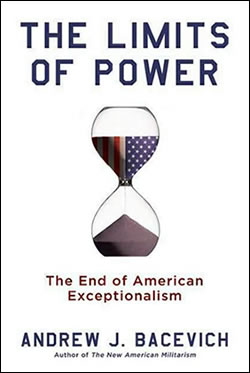
and look forward to his upcoming book, Breach of Trust.
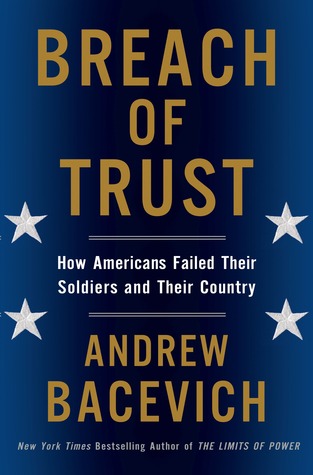
7. Where Credit Is Due – NYTimes.com
Gail Collins on women, credit cards, and sexism. Startling fact: 39 years ago “Kathryn Kirschbaum, then the mayor of Davenport, Iowa, was told she could not have a Bank of America card without her husband’s signature.”
8. 50 Years Later – NYTimes.com
Charles Blow continues to point out racism. “A study this year by Dana Thompson Dorsey of the University of North Carolina at Chapel Hill found that ‘students are more racially segregated in schools today than they were in the late 1960s and prior to the enforcement of court-ordered desegregation in school districts across the country.’ ”
9. In California, a Champion for Police Cameras – NYTimes.com
Although the subject of this article is police departments use of cameras, it reminded me of a comment I read recently online that wondered if crime was going down because of the ubiquitous cell phone camera, people more afraid of being taped committing crimes than going to jail.
I love Barney Frank. This is about “House of Cards.”

I survived not having the internet at the cottage pretty well.

The new owners of the cottage had installed cable and a huge flat screen TV. The cable modem had a wireless signal, but of course it was security protected. I gave it a half-hearted attempt at hacking. We had the phone number of the owners. I could have easily called and found out if we could have had access to it. But I didn’t.

The time we spend at the cottage each years seems to be a particularly relaxing one for me. Being disconnected might very well be part of this. Not sure. I spend a lot of time reading at the cottage.
This year I read in several books as is my practice. I tend to read non-fiction before lunch and fiction as the day goes on.
I finished Far Glory: The Quest for Faith in an Age of Credulity by Peter Berger. I couldn’t help but wonder if my deceased father would have resonated with some of Berger’s ideas. In particular, Berger’s own combination of belief and skepticism. As he says in the next book I started next by him (A Rumor of Angels: Modern Society and the Rediscover of the Supernatural, 1969), “I (Berger)… consider myself a Christian though I have not yet found the heresy into which my theological views would comfortably fit.” loc 21 in the Kindle edition.
I read Heart-Shaped Box by Joe Hill.
Joe Hill is the son of Stephen and Tabitha King.

This guy.

Not this guy.

I got interested in this group of writers when I read a recent NYT article about the family. It interests me that so many people in a family are published authors.
Hill writes a bit in his father’s vein. This story is about an aging 54-year-old death-metal musician named Jude. He buys a suit through a dodgy ebay type web site. It is haunted by the father of one of the women Jude has used and discarded who has committed suicide. The novel is the story of his confrontation with this ghost and his own life.
The writing oscillates between pedestrian and pretty damn good.
Hill is easily his father’s protegee in plot and writing ability. Some of the extended can u buy valium over the counter King family are comfortable with being connected to the famous father. Some are not. Hill has so far fallen in the latter category. There is no mention of Stephen King by name. Hill does thank his “parents and siblings for their time, thoughts, support, and love.”
I had a graphic novel with me by Hill.
At first I was disappointed that it was volume 3 in a series. I started it anyway and became quickly disappointed with the story line. It started interestingly enough with a confrontation between two spirits who somehow are tethered to people in the living world (at least one of them was). It seems to be about some sort of team of heroes who might be siblings. My interest waned when four college kids spend several pages stuck in a cave they have deliberately wandered into.

Shades of Scooby Doo.
This volume is dedicated both by Hill and Gabriel Rodriguez to their kids. It feel like an attempt at writing down to them. I hate stuff like that.
I may back up and start the series with volume 1 if I can get them through interlibrary loan.
On the way home yesterday, we stopped and said hi to Eileen’s Mom. She was in the process of having her new dishwasher installed. My brother-in-law and his brother-in-law were the designated installers. After checking out Eileen’s car, they proceeded to install the dishwasher. The women (Eileen’s Mom and Sister Nancy and Walt’s sister) sat at the table and talked. So the men did one thing, the women another. I didn’t really fit in either situation. Nobody seemed to mind when I went to the car and got my laptop and sat on the couch accessing the internet via my phone.
I was happy to do that.
I was also happy to get back in my space and get some organ practice in before this morning. I took the postlude with me and practiced it each day at the cottage. It is for manuals (Fugue in F Minor by Charles Burney, I think I mentioned it in a previous post).
I think I will play it a bit better this morning for having gone over it during vacation

So, there is no Verizon phone service at the cottage we are staying. I’m writing from a charming little book store/wine bar/coffee shop in Whitehall.

I have been here a few times in the last couple of years. I came in to town during the last cottage trip for an internet fix. Then earlier this year, Eileen and I stopped on our way after dropping off Edison at Eileen’s Mom’s for the annual Jenkins trip to the Hatch cabin. http://www.thebooknookjavashop.com/
They run music here as you can see above.
This will be a short blog. It’s possible I won’t post again until Sunday. I am enjoying staying at the cottage with Eileen and Barb. Very relaxing. Doing a lot of reading. I brought my electric buy apaurin diazepam piano and rehearsed Sunday’s postlude. I tend to pick out music that has little need to rehearse pedal parts when I’m in the situation of not counting on having an organ to practice on.
I’m playing a postlude by the music historian, Charles Burney.


It’s a charming little fugue in F minor. English organs from this period (18th century) didn’t have much in the way of pedals. At least I think that’s true.
I think I own Burney’s history of music.
At any rate, it’s sitting online.
But enough of this, I want to read some of today’s paper before I have to go back to the wilderness.
I’m not sure if I will post for the next few days (Thurs Aug 22 – Sat Aug 24). Eileen are jumping in the car this evening and driving north to a little cottage on Lake Michigan. We will be joining our friend, Barb Phillips, who rents a cottage every year and then tries to get family and friends to join her.
At the Grayling cabin I was able to access the internet via my smart phone.

This might be possible at the cottage as well. But even if it is, I may take a bit of a hiatus. As the fall schedule begins, I find myself not as rested and relaxed as I wanted to be at this point. So I may just sit around and read and not blog.

Yesterday helped calm me down. I got a lot of church stuff done that I wanted to get done. I took my Mom to her her neurologist. I wasn’t able to get her an appointment until Oct 1. But we were on a waiting list and she was called in yesterday. She has myasthenia gravis which is a neurological disorder.

She has been diagnosed for quite a while (1996 or so?) but her symptom of excessive saliva has recently returned. (This is a very unusual symptom for this disease and seems to be one of its most benign). Her internist and I agreed it would be good to have a neurologist look at her.
My piano trio also switched our rehearsal day to yesterday so we wouldn’t miss a week. We usually meet on Thursdays. This is kind of funny because we are not performance driven. Rather we enjoy it so much we don’t like to miss. For my part, I have been spending time with the beautiful piano part for the Fauré piano trio we have been playing.

Also, a parishioner who was hanging around sat down and listened to an entire movement of Haydn (another of our little projects).

This kind of thing (playing music with others) is refreshing.
Most of the day yesterday I lugged my laptop with me and worked on church stuff. I finished the Gloria. It’s now available on my FREE MOSTLY ORIGINAL SHEET MUSIC PAGE as a pdf.
My piano trio was kind enough to listen once again to it yesterday. I had made a few changes but they seem obvious or unwarranted to them.
I woke up this morning wondering if we would really begin using it this Sunday. Rev Jen mentioned that we had a baptism this Sunday. When there is a baptism we usually omit the Song of Praise (which is what the Gloria is). I have a staff meeting this morning. Afterwards Jen and I will have a chat. I’ll probably find out then when we will start using it.
In the meantime, I am looking forward to some rest and relaxation in the next few days.
I have a busy busy day ahead of me. Eileen and I are taking off to spend a few days at a cottage with our friend, Barb Phillips. We leave Wednesday night. Before then I have to get a bunch of stuff ready for church (3 weeks of bulletins stuff, the new Jazz Gloria, at least the first anthem for the first choir Sunday on Sept 8).

I also have to get my Mom back and forth to the neurologist this morning. We were on a wait list and were called yesterday. They mailed me a huge packet of forms to fill out which I haven’t even opened yet. My patience with medical bureaucracy is at an all time low. Several of the providers seem to have redone their systems and no longer recognize me as someone who can access and discuss Mom’s health. I was a bit upset yesterday with one of them and managed to bully them into letting me schedule Mom with the proviso she would sign a new release form at the appointment.
So I’m a busy, sometimes grumpy guy.

The good news is it looks like I have a working version of my Jazz Gloria.

Unsurprisingly, the illustrious Nick Palmer got back to me with helpful comments. He also sent me some of his work which I suspect he thought was along the lines of the style I was working in incorporating a bit more popular feel (or as I like to think of it: writing what I hear). As usual his work is interesting, attractive and well constructed. I like this guy.
I have a bulletin copy of the Gloria ready to go in. We are planning to begin this Sunday with it and my other Jazz Mass pieces (Sanctus. Fraction Anthem).

Our contractor is coming at 8:30 to take a look at our mostly finished project. He has promised to help Eileen with a few more tasks around the house like leaky ancient faucets upstairs. We also have our fridge sitting on a heat vent. This won’t work. So something must be done before we need to use the furnace.
Anyway about the title of today’s post. It’s a phrase and a concept from Daniel Kahneman’s Thinking Fast and Slow. It refers to the fact that in all fields, experts (because they are human beings) will more likely make bad judgments if they go by their idea of their skills and intuitions and ignore basic formulas based on simple facts.

Time and time again Kahneman cites case studies that pit subjective judgment against simple statistical formulas. In every case, the formula beats the human judgment. This means doctors, economists, political pundits as well everyday guesses and judgments we all make.
The book is making a huge impact on my own understanding of myself and how I relate to my surroundings.
Another insight he writes about is the more confident someone is their predictions and understandings, the more likely they are to be wrong.

I have to wonder if my own wavering confidence in my judgments has anything to do with noticing this effect over my lifetime.
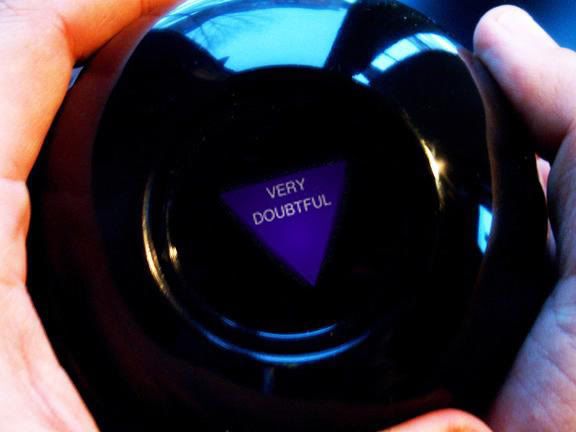
Nah.
Anyway, more tomorrow. I have a lot to do.
This past Friday evening at a party, I was talking to someone about Northern Organ building and mentioned Buxtehude. This prompted my listener to lean over and recite these words:
Where BUXTEHUDE as we played
One of his passacaglias made
Our minds a civitas of sound
I came home and looked it up. It’s from New Year Letter (January 1, 1940) by Auden.

It continues this way:
Where nothing but assent was found,
For art had set in order sense
And feeling and intelligence,
And from its ideal order grew
Our local understanding too.
This piece is described as a “long philosophical poem” in Auden’s wikipedia entry. I put it on my daily morning reading list and am most of the way through it.
I like Auden’s mind.

I enjoy reading his poetry and essays, but have neglected him of late. Since I have read all of Eliot, maybe now is the time to dip more into Auden’s work in a systematic manner.

I like his description of how Buxtehude’s wonderful music can make a listener’s mind a city of sound.

Order is definitely part of what I find satisfying in some music especially baroque and especially Bach. Initially I was attracted to the idea of fugue in Bach as a wonderful puzzle-like contraption that defied human contrivance.

Now I understand fugue a bit better and am less impressed with fugue for its own sake, but am very drawn to fugues that have beautiful or interesting melodies in them.

Yesterday morning found me going over passages in the Handel concerto scheduled silently on my electric piano before work. My Friday road trip made a dent in my daily practice. I did use the Handel as tryout pieces on the instruments I played. But I have been rigorously rehearsing my organ pieces with lots of repetition. I didn’t do this Friday. Saturday I practiced but was very tired. I thought it might be a good idea to rehearse the keyboard parts before church.

I think this made a bit of difference in how well I played. There was a lot of disturbance near the organ bench yesterday during the prelude. This was a challenge to my concentration I wasn’t expecting.

Handel is a different experience for me than Bach. His ideas are a bit more succinct. Their attraction is in their loveliness and grandeur. Since some of Handel is overly familiar (Messiah et al) it makes sense that a listener is drawn to him in this way.
I remember running across Samuel Butler’s take on Handel. It may have been this quote I googled this morning:
“Handel is great and so simple that no one but a professional musician is unable to understand him.”
At any rate, I associate the great author of The Way of All Flesh with the creator of Messiah and other fascinating works.

I haven’t been putting up links so I thought I would do a few today. Thanks to Rhonda Edgington for pointing out this blog post on Glen Gould. It’s from 2010 and is on John Adams’ extremely sporadic blog (which apparently is ghost written at times). I have it bookmarked to read.
2.The Memoirs of Jacques Casanova de Seingalt, 1725-1798. Complete by Casanova – Free Ebook
The entire journals of Casanova online in an English translation. I got this link from Blog of a Bookslut a reader’s blog I check pretty regularly. The blogger (whom I quite admire) had this to say about it: “Even as dirty as it is, things were euphemized and skipped. The newer, Willard Trask translation, is a marvel. Beautiful and filthy, nuanced and dignified, just like its original writer.”
3. Justice at the Opera – NYTimes.com
Justice Ginzberg sees herself as a soprano in her fantasies. Also sees the Supreme Court as operatic. Recommended article.
4. Designated Cheering Spectators Thrive at the Bolshoi Theater – NYTimes.com
I started out admiring this band of Russian ballet enthusiasts who exchange their planted applause for free tickets. I ended up a bit disgusted with the way they took revenge if you crossed them. Anyway, who knew about this? Not me.
5.Accidental Mysteries, 08.04.13: The Collection de l’Art Brut: Observatory: Design Observer
l’Art Brut is some of my favorite art.
After our road trip Friday, Eileen and I attended a 60th wedding anniversary party. The wife sings in my choir and her husband is a retired prof. It was fun, but Eileen and I were exhausted from our day. There was an open free bar, but I resisted having a martini. Eileen and I both had some red wine. I enjoyed chatting with people I have known for some time. We didn’t stay very long.
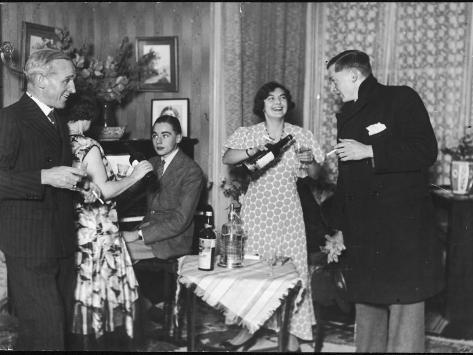
The next day I was glad we hadn’t since the entire day I was exhausted.
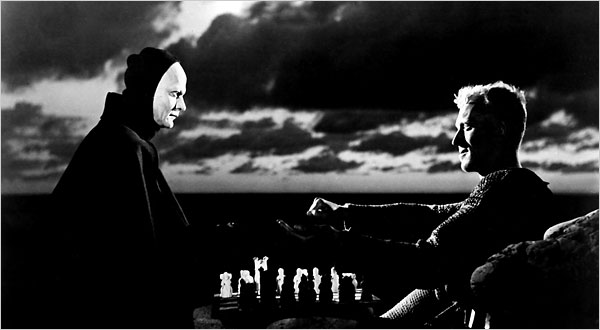
I wrestled with my mortality all day, feeling half dead or dying.
Nevertheless I did my usual tasks and went to the Farmers market, grocery shopped, practiced organ and exercised.

I also am finishing up my new Gloria for the Grace Jazz Mass. I sent off copies to colleagues for comments and also showed it to a parishioner hanging around church yesterday. At this point I have difficulty being very objective about it. Making a piece of music for a congregation to sing is tricky. One wants it to be attractive and as beautiful as possible. But at the same time it must be easily sung. Because of this I found myself toning down some of the tricky rhythms at this stage. Or at least experimenting with dong so. I haven’t made my mind up entirely. Rev Jen and I have agreed to probably start using the Grace Jazz Mass next Sunday. This means I need to nail it down enough to make a bulletin version.

Once I have introduced it, I am hesitant to do much changing of the melody I teach a congregation. So I want it to be in as finished a form as possible.
However my idea of this particular Gloria is that it’s execution will evolve a bit as the assembled singers get comfortable with it. Specifically, I have written added doo wop parts for the choir.
Also the ending involves a repetitive section in which I’m hoping the congregation will choose a part. Also I would love to add instruments and percussion and make the whole experience a bit African like in its freedom. But not at first. First I want to see how it flies with the congregation. My instinct is to wait and introduce it after the choir gets going in the fall. But Rev Jen wants to move ahead. And I am also excited to see how it works and glad to get it going.

I received an email from the chair of the Ballet department on Friday. In it she offered me hours for the fall. Again she is offering to have me come in every day beginning at 8:30 AM. I am planning to call her and set up a time to speak with her face to face and see if we can’t work out not being present every day.
My summer has been one in which it seems I have leaped from one intense thing to another beginning with eye surgery. As I said above I have been thinking of my own mortality and also my ebbing energies. If I could limit my ballet accompaniment a bit, at this point I would like not only to use the time for my usual solitude of reading and practicing but I would like to return to some more composing.

I haven’t been doing my bad Paul Simon routine (writing and performing songs on guitar, banjo, whatever). I don’t feel a need to return to this activity. But I have been having compositional ideas come at me involuntarily. This is a good sign. I am feeling increasingly uneasy at not putting my ideas down on paper (or on a computer screen in Finale as it were). Another good sign. I am feeling a bit like I did around 2000: one only gets so much time to be alive, time to do some fun stuff.

This is the problematic two measures I mentioned in yesterday’s post. It’s from Fauré’s Theme and Variations, opus 73, variation six. I promised my student I would try to make a cleaner version to help him work on these relatively simple cross rhythms in a complex context. Here’s what I came up with:
The notes are lined up automatically in Finale. I enjoy doing this kind of thing and did have time to get it done before we left for our little adventure yesterday.
I enjoyed the chance to chat with Rhonda on the drive down to South Bend. Eileen sat in the back and patiently did Soduko and navigated while Rhonda and I talked shop in the front.
Having a colleague around (again) is such a pleasure. She also was a valuable asset in my understanding of the instruments we played yesterday. Rhonda is in love with and has an expertise in the kind of organ building (German, north and south, 17th-18th century) the two organs were examples of.
Thus she could help me register them quickly so I could hear the sounds in clear ways. It was also invaluable to listen to listen to her play from a distance and get a better idea of the organs actually sounded.
But first I listened to different ranks separately and carefully.
The Fritts at Notre Dame is a historical reconstruction of the kind of organ Buxtehude played in Northern German. Rhonda spent several years in this area, studying and playing the organs that are still there.
I found the different ranks unified in their sound. In other words all the principals were very much the same whether they were pitched at the written sound or one or two octaves about the written sound.

I mention this because I was charmed by the way the Taylor and Boody (above) managed to create unique character in different ranks even though they were of the same family (i.e. principles or flutes). The Taylor and Boody at Goshen represents a different historical reconstruction according to Rhonda. It’s an example of a more southern German sound which I found warmer and quite attractive.
Of course a great deal of an organ’s sound and over all subjective feel and experience is the room (concert hall or church) in which it resides. The Notre Dame room is a bit more formal feeling to me. The reverberation was correct and lengthy. But the overall architecture in the room felt pretty formal in a very university way (appropriate enough).

The Goshen room was much different. As you can see above, chairs instead of pew-like benches (this view I found on the web is looking out from the organ area).It wasn’t exactly less formal but instead of the white bright surfaces of the Notre Dame hall, the walls were some sort of cement or stone block and just seemed more friendly. It also helped that there windows in the Goshen room (as Rhonda pointed out).
This is my phone pic of the Taylor and Boody console.
A little added bonus at Notre Dame was an actual historical instrument made in Italy around 1750 and beautifully restored by the organ building Martin Pasi.
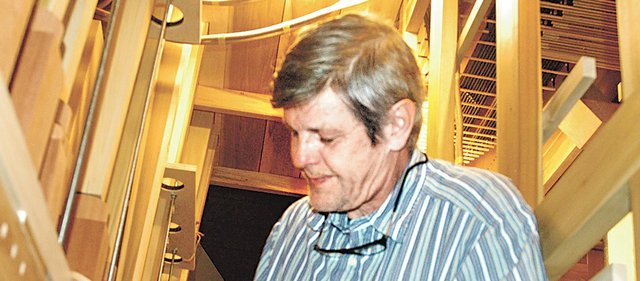
It faces into the room directly opposite the Fritts.
It had a beautiful gentle sound.
The music rack was simply hooked onto the rim below the pipes. It was totally movable.
Playing these wonderful instruments helped me remember that I am an organist. I miss playing good instruments. But not seriously enough to be discontent in my present gig.
I couldn’t resist a little phone pic of the beautiful scroll work on this instrument.
It was a day well spent and very satisfying.
I’m writing this post a bit early this morning and would like to keep it short to save some time. My 82 year piano old student is working on Fauré’s Theme and Variations, Opus 73. It’s a difficult work. I promised him I would put several measures of variation 6 into Finale. It involves some cross rhythms that are well within his abilities but the notation is kind of cramped. Easy enough to make a little practice version for him. I would like to do that this morning before we leave on our pipe organ road trip.
Not too much to report this morning except that I continue to be amazed at how busy I am despite the fact it is summer and I have no ballet classes and less duties at church.
I started the day yesterday moving my electric piano, amp and electric guitar back and forth from home to the library. Eileen was giving a presentation about electric musical instruments to a group of 4 and 5 year olds. I was the talent. The doing of it was easy. The hard part was moving the equipment.
I also had to do the book thing for my Mom. About once a week I take ten or so books back to the library for her and then pick out more. I keep a list of everything she has had in her hands. This is an easy but time consuming process. She basically likes Christian romances (!). Also they need to be large print. Most of my efforts to get her to read better written books fail. I find myself searching the web for hints for more writers to take to her. If she doesn’t like a book I’ve chosen I encourage her to just put aside and try another in the pile. She doesn’t really need this kind of encouragement judging from the disdain she sometimes expresses about some of the books I take to her.
I also am very suspicious that she actually reads as many of the books as she claims to have read. I have so far resisted the temptation to bring her the same books over and over again and see if she notices.
While I’m talking about Mom I should point out that she seems to be in a bit of an upswing in mood and coherence. These things happen. She insisted on coming over to my house after her pain doctor appointment on Wednesday. She has a standing invitation to do stuff like that but she rarely does much without some encouragement. And she usually is really out of commission after the pain doctor visit since the main (only?) thing he does is give her a shot of strong pain meds.
So it was actually a pleasant surprise that she wanted to come over and see our new bathroom and kitchen walls.
Also she left a message for me yesterday inviting Eileen and me to join her for supper at the nursing home. They were having their annual fish boil. I took a rain check on this invite (it was date night after all). In the message she left on the phone she actually said “Love you.” Which is the way my fam sometimes says “I love you.” I was charmed.
I’m going to quit and do some other stuff. No pics today. That’s what can get time consuming: google image searching or trying to upload pics I have taken.

I love it when two different sources of ideas (usually books) come at me with identical stuff.
A few weeks ago I was on the phone with Craig Cramer.

He was my teacher in grad school and is one of the few colleagues that I still keep in touch with from that period. We love to talk books. He mentioned the author Paul Auster. I told him I had heard of him but had not read anything by him. Craig raved about how witty and interesting Auster’s books were.

I have since figured out that I weirdly confuse Paul Auster (living novel writer) with Paul Bowles (dead and probably more esoteric writer and composer). I have tried to read the latter but not the former.
Anyhoo I picked up a novel by Auster and began reading in it.
I mentioned a while back that the characters in the book were talking about a paper one of them had written in grad school which drew on three obscure pieces by Edgar Allan Poe and compared them to some ideas in Thoreau.

Intrigued I purchased and downloaded a huge collection of Poe for my Kindle and promptly began reading the three essays.

Michael Robbins is a poet I like and I regularly bop on over and check out his blog. He writes about and links in to all sorts of stuff. At the beginning of August, he wrote about a review he had done of Guy Davenport’s Geography of the Imagination.

I went on Amazon and read enough to want to read more by the author and procured a copy from the liberry.

Yesterday my Mom had a pain doctor appointment. I usually take my Kindle and maybe a book or two along to read while I wait. I took the Paul Auster novel and the Guy Davenport collection of essays called Geography of the Imagination.
In the first essay which bears the title of the book, Davenport develops the idea of imagination of course. Here’s the first sentence: “The difference between the Parthenon and the World Trade Center, between a French wine glass and a German beer mug, between Bach and John Philip Sousa, between Sophocles and Shakespeare, between a bicycle and a horse, though explicable by historical moment, necessity, and destiny is before all a difference of imagination.”
I was hooked.

On page 5, I read: “The imagination is like the drunk man who lost his watch, and must get drunk again to find it. It is as intimate as speech and custom, and to trace its ways we need to reeducate our eyes. In 1840—when Cooper’s The Pathfinder was a bestseller, and photography had just been made practical—an essay called “The Philosophy of Furniture” appeared in an American magazine. Dickens made fun of Americans for attending lectures on the philosophy of anything, the philosophy of crime on Monday, the philosophy of government on Wednesday, the philosophy of the soul on Thursday, as Martin Chuzzlewit learned from Mrs. Brick.”

And so on. The title of the essay in question sounded familiar. And then it struck me. It was one of the three essays the Paul Auster character had mentioned by Edgar Allan Poe.
Davenport doesn’t mention Poe by name until the next paragraph.
I looked on the floor next to the chair and there was my copy of the Auster novel with the section about Poe and Thoreau still marked with a sticky. Beside it was my Kindle on which I had all the essays and stories of Poe.
I love this shit.
I used up my blogging time this morning typing in reading notes for Peter Berger’s A Far Glory. He is helping me understand how I live in a time of weird credulity and some ideas of how it all can make sense. Speaking of making sense, I’m also greatly benefiting from Daniel Kahneman’s Thinking Fast and Slow. I’m hoping I can somehow absorb some of the clarity of his insights about how we all (including scientists) can fall into traps of fuzzy thinking.

Friday I have a road trip planned with Eileen and Rhonda E. We are driving down to Indiana so I can play and hear a couple of pipe organs. My teacher Craig Cramer installed a fancy organ in their new music building at Notre Dame several years ago and I haven’t gotten to hear it. This is what it looks like.

It’s a Fritts. Also there is a Taylor and Boody in Goshen and we are planning a stop there as well. Here’s a pic of it.

An unexpected pleasure is Eileen’s insistence on moving her grandmother’s pie safe into our newly painted kitchen.
I’m tickled. It adds a bit of a rougher touch to our fancy dancy renovation. One I like a lot.
And of course our small little kitchen could use more storage space.
I’m out of time. I have to take my Mom to the pain doctor today, pick up my CSA from the farmers market, work at church, practice organ, give a piano lesson and meet with an AGO subcommittee this even. Time to get going.

I am continually impressed with the way I can connect with so many different people these days. Most of this is done via the interwebs.
I was looking at some interesting pictures of a choir from Ghana on Facebook yesterday. I am a member of an organist Facebook group that is very diverse and world wide. I thought the pictures looked very cool. The people in them seemed relaxed and enjoying making music. I “liked” the pictures which one can do.
Not too long thereafter I received a “friend” request from someone named Kras Arthur Jr. I regularly get fake “friend requests” but usually with a little investigation I delete them. If I have a question I can click on the person and find out a bit more about them. I could see at a glance that this person was from Ghana and involved with music there. I instantly accepted the request.
In a little bit I received a Facebook comment from him thanking me. We went back and forth with messages. He told me which person he was in the pictures. He is seated at the far right at the keyboard in this picture.

Also yesterday I was reading a comment on an article about Church and Youth that has been floating around. I wanted to read more of the conversation but the way Facebook works I had to be friends with some of the commenters.
I recognized one of them as a Roman Catholic Publisher exec from World Library Publications in Chicago. I sent a friend request to him and one of the commenters that I agreed with. Within minutes the Publisher dude had accepted my friend request and before too long the other person had as well.
I mentioned my nephew in Florida in my blog yesterday. His sister read it and messaged me on Facebook. She lives in Ohio. I have known both these people all their lives. We chatted back and forth briefly. A delight to catch up a bit with someone I care about (Hi, Cindy!) but don’t see in the flesh very often due to circumstances.
Then I noticed on Facebook, that another nephew, Ben Jenkins, had posted a link to a music review blog post he had done. I went on and looked at it. I went back on Facebook and commented on his link asking him if he had every heard of a group I’m interested in right now called Future Wife.

He hadn’t. I sent him a link and he messaged me he was listening to it. Then he asked me if I had listened to the CD he bought me for Christmas. I thought I had but after putting it up on Spotify I realized I hadn’t heard it before so I played it while I cleaned.

Ben lives near Ann Arbor. I realized that we were sort of listening to each other’s music simultaneously. I found that kind of cool.
I noticed that Eileen had put up a new blog post on her Herrick Library blog. I thought that was cool as well and “shared” the link. Before long, it had been “liked” by all three of our adult children who are of course in widely dispersed geographic areas: Sarah in England, Elizabeth in China, and David in California.
I love this shit.
Finally, I was looking at book a friend gave me a few years ago.

I rediscovered that it’s a book of excerpts from a wide array of thinkers spread across time and diverse disciplines and religions and such.
I glanced at the chapter on Boethius.
When I was in grad school, the chair of the music department was Calvin Bower. His scholarly work was on Boethius and sure enough the chapter in this book drew on his translations and scholarship.

I was reminded of taking a look at his book on Boethius when I was in school. I went to the library and found it under Calvin (his first name). I gave him some shit about that, so important that the library just used his first name when filing his work.

Peter Berger continues to surprise me in his book A Far Glory. At the conclusion of chapter 5, he draws on Lorca about the concept of duende.

He says the word means literally ghost, but it’s a concept I am interested in and eludes simple definition. Berger says that duende “also refers to a mysterious impersonal quality attached to certain events and places. It is related to Socrates ‘demon’ and to the African American ‘soul,’ and is more or less a synonym of Rudolf Otto’s ‘numinous’ dimensions.”

I own Lorca’s little book, In Search of Duende. Berger mentions this essay. After finishing chapter 5 in his book, I stepped to my bookcase and was delighted to find my copy of Lorca’s book.
It is the book of a poet and is full of beautiful and fanciful language which romanticizes and extols the cante jondo (deep song). He insists that flamenco is a subset of cante jondo.
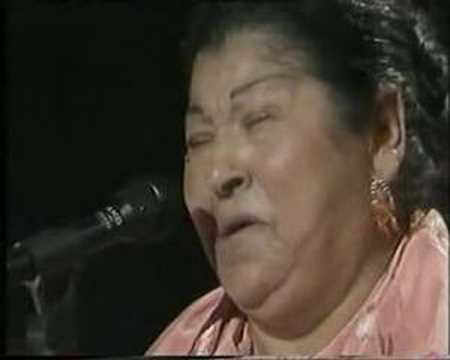
He also (writing in 1929) laments the loss of the true song and confusion of it with vulgar songs of the tavern.
Admittedly I don’t read Lorca to help me understand this history. His editor suggests reading Israel J. Katz’s entry “deep song” in the New Groves. I read Lorca for the beautiful poetry.

Berger himself waxes poetic: “… Lorca quotes one Manuel Torres, who wrote somewhere that ‘todo lo que tiene sonidos negros tiene duende’ — ‘all that which holds dark sounds holds duende.’ This world is a very noisy place. The believer acquires a sort of third ear. Amid all the noise of mundane existence, with a bit of straining, he can hear the dark songs of God.”
1. Florida Sit-In Against ‘Stand Your Ground’ – NYTimes.com
I have a nephew living in Florida who is a strong supporter of the Stand Your Ground laws. We disagree.
2. Help Thy Neighbor and Go Straight to Prison – NYTimes.com
3. After Guantánamo, Another Injustice – NYTimes.com
These two links support the idea that the USA has become a police state systematically repressing its own people. “We are becoming the extremists we claim to fight against,” writes the novelists John Grisham author of the second article.
4. When Douglass Met Lincoln – NYTimes.com
At one point Fredrick Douglas refuses to help the North recruit slaves as soldiers.
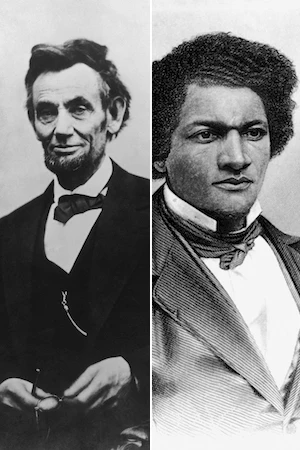
5. Amazon.com: 79 Short Essays on Design eBook: Michael Bierut: Kindle Store
This book was $3.49 yesterday in the daily Kindle sales. I thought it was a bit more than I wanted to pay even though I read a couple of the essays online and admired them. I did bookmark the author’s online column however for future reads. There were many books on sale yesterday. I posted the link on Faceyuck. I only bought two:
The Thelonious Monk Reader by Rob van der Bliek and

The Studio Recordings of the Miles Davis Quintet 1965-68 by Keith Waters.
6. What’s the Story? – NYTimes.com
The NYT keeps printing first person essays by composers and song writers. This one is by Adam Schlesinger from Fountains of Wayne.
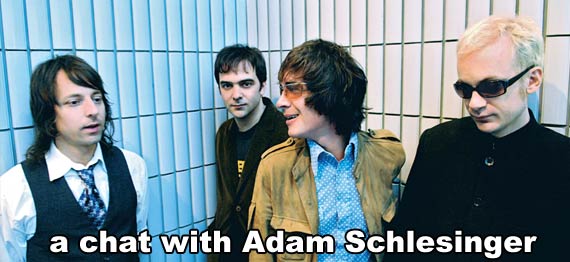
7. Phony Fear Factor – NYTimes.com
I admire Paul Krugman. I like this from this article:” Adam Smith himself pointed out nearly 250 years ago that the greed of the wealthy is insatiable. What do they want? They want it all.” and this: “in the winner-take-all economy the winners will in fact take all.”
8. Donna Brazile: Voting Rights Act needs help
The new Jim Crow seems to be everywhere.


I keep thinking of Tyler Caskey, the young minister in Elizabeth Strout’s novel Abide with Me. It was instructive to me to have eavesdropped on this character’s wrestling with life. He is caught up in the world of belief and the church. It is a world I was born into and in which I continue to spend quite a bit of time.

Caskey talks about The Feeling. It seems to be that feeling of bliss that can come over one in the presence of beauty or something that feels so deep and real it is practically inexpressible.

For Caskey it’s a window into his relationship with God. Here’s the passage I put in my reading notes:
” … what Tyler longed for was to have The Feeling arrive; when every flicker of light that touched the dipping branches of a weeping willow, every breath of breeze that bent the grass toward the row of apple trees, every shower of yellow ginkgo leaves dropping to the ground with such direct and tender sweetness, would fill the minister with profound and irreducible knowledge that God was right there.”

What saves Strout’s novel from utter mendacity is Tyler Caskey’s struggle. After such musings which seem almost pollyanna, he immediately thinks:
“But Tyler was wary of shortcuts, and he was really afraid of cheap grace. He often thought of Pasteur’s remarks that chance only helped those minds well prepared, and he hoped these days to have a moment of exalted understanding come to him as the ‘chance’ result of his disciplined prayer. There was a fear the man lived with, a dark cave inside him: that he might not feel the Feeling again.”
“Cheap grace” comes from Dietrich Bonhoeffer’s thinking.

There is cheap grace and costly grace. I think this is in his book The Cost of Discipleship.
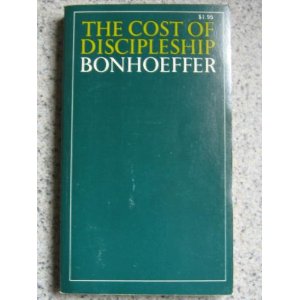
I know that Bonhoeffer was dealing with the idea of not needing to strive to live ethically thereby “earning” your salvation by how you live once you been “saved” or something. But the takeaway for me was that if religion feels too good and moves along too smoothly, one is probably caught in a smug dishonesty of self-deception. There has to be a cost.
Peter Berger talks about the dangers of certitude in the modern situation of plurality or having so many choices in how to live.
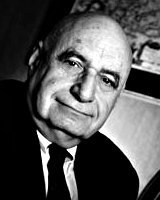
We can no longer be as certain about our faith and life when we know there are many ways to believe and live. These many ways have provided the basis for many excellent and good lives.

It is not true that Christianity is the only way to salvation. It’s crazy to think that.

I’ve been reading Berger’s A Far Glory.

He talks about the certitude of people he describes as traditionalists. He has come to the point that he doesn’t take pleasure in instilling doubts in these people in the modern situation as long as they “do not seek to impose their putative certainties on everyone else.” This is an important stipulation. However he is still critical.

“The neo-traditionalist, in laying claim to certitude, must deny his own experience of uncertainty. And in behaving as if the traditional affirmations are certain, he must constantly repress his knowledge that he could, if he wanted, affirm something quite different.”
A page later he writes this passage.
“Just as it is untrue that there is no salvation outside the Church, it is not true that only in the Church can we find the signals of transcendence.
“I have long thought that the signals we can find in ordinary, everyday life are of decisive importance: The recurring urge of human beings to find meaningful order in the world, from the overarching edifices constructed by great minds to the assurance that a mother gives her frightened child;
“the redemptive experiences of play and humor,
“the ineradicable capacity to hope,
“the overwhelming conviction that certain deeds of inhumanity merit absolute condemnation,
“and the contrary conviction as to the absolute goodness of certain actions of humanity,
“the sometimes searing experiences of beauty, be it in nature or the works of man…”

Berger and Strout help me understand both my youthful struggle with being raised in a fundamentalist church and my own turn to beauty and living life in the moment as important aspects of being alive.
It looks like we are completely finished with the construction part of the renovation. Yesterday Chris installed the shower head I ordered.
This is probably one of the happiest parts of the renovation for me. I love that I can now (again) use a hand held shower head. It is great. I am spoiled.
The electrician changed this switch. It was a dimmer. Dimmers give off a certain amount of heat and this caused the thermostat to malfunction. Fixed.
Chris finished painting the kitchen.
Eileen cleverly chose a slightly lighter green for the rest of the room. I think it works.
Note the narrow panels on either side of the window over the sink. Heh.
You can also compare the two greens in this shot.
Since the new door to the bathroom meant that we lost an outlet, the construction involved adding this outlet to the living room. Note that one can plug four things into this outlet. Big improvement in an old house like this with too few outlets.
I spent Thursday cleaning and rearranging the living room.
Our familiar chaos has returned. But we do hope to continue organizing and getting rid of stuff. Eileen is planning to paint the new room on this floor which will eventually be the master bedroom on Friday.

I have been reading Daniel Kahneman’s Thinking Fast and Slow. I am hoping it will help me think more clearly and become more aware of how I process information.

Kahneman, distinguished scholar in psychology and economics, has been studying how we reason. His basic insight is that there are two systems at work when we make a judgment. He calls them system 1 and system 2.

Basically when we respond instinctively and quickly, system 1 is at work. It helps us make snap judgments, assess a situation quickly for danger or safety, stuff like that.
System 2 is engaged when we reason about something, ponder it, and then draw conclusions. This system is the slow one.
Having introduced these ideas, he proceeds to show how easy it is to come to incorrect conclusions and assumptions.

I’m about a quarter of the way into the book. At this point he is demonstrating quite effectively how we often answer a different (easier) question when confronted with a difficult question.
Specifically how when asked how probable something is, we answer how plausible something is.
He discusses several classic experiments. One of them is the Linda experiment. Kahneman and his colleagues invented a fictitious person and named her Linda. Here’s the experiment.
First participants in the study were given this description of Linda:
“Linda is thirty-one years old, single, outspoken, and very bright. She majored in philosophy. As a student,she was deeply concerned issues of discrimination and social justice, and also participated in antinuclear demonstrations.”
Then they were asked how probable the following statements would be concerning Linda:
Linda is an elementary school teacher.

Linda works in a bookstore and takes yoga classes.

Linda is active in the feminist movement.

Linda is a psychiatric social worker.

Linda is a member of the League of Women Voters.

Linda is a bank teller.

Linda is an insurance salesperson.

Linda is a bank teller and is active in the feminist movement.

After pointing out how dated this experiment sounds (the experiment was done in the 80s), Kahneman proceeds to report on the way the subjects reasoned about Linda.
Unsurprisingly, most people thought it was probable that Linda is an active feminist (again a dated description), or works in a bookstore and takes yoga classes, but not as likely to be a bank teller or an insurance salesperson.
But the revealing comparison was in the two descriptions about Linda as a bank teller. Is it more probable that Linda is bank teller or that she is a bank teller and is active in the feminist movement?
A plausible, more coherent story would lead one to see Linda would be more likely to be a bank teller and also active in the feminist movement. This is plausible but not probable.
There are more bank tellers than bank tellers who are active feminists. So it is more probable that Linda of the description (which adds a layer of coherence and plausibility) is a bank teller than that she is a bank teller who is a feminist.

I love this. And it’s helpful when thinking about judgments, especially political and social ideas.
Kahneman says early in the book that one of his main goals is to change the tone of casual conversations around the water cooler where people are spouting opinions and judgments.
I like to think that’s an achievable goal. But in this day of emotional fervor and lack of logic, maybe not.